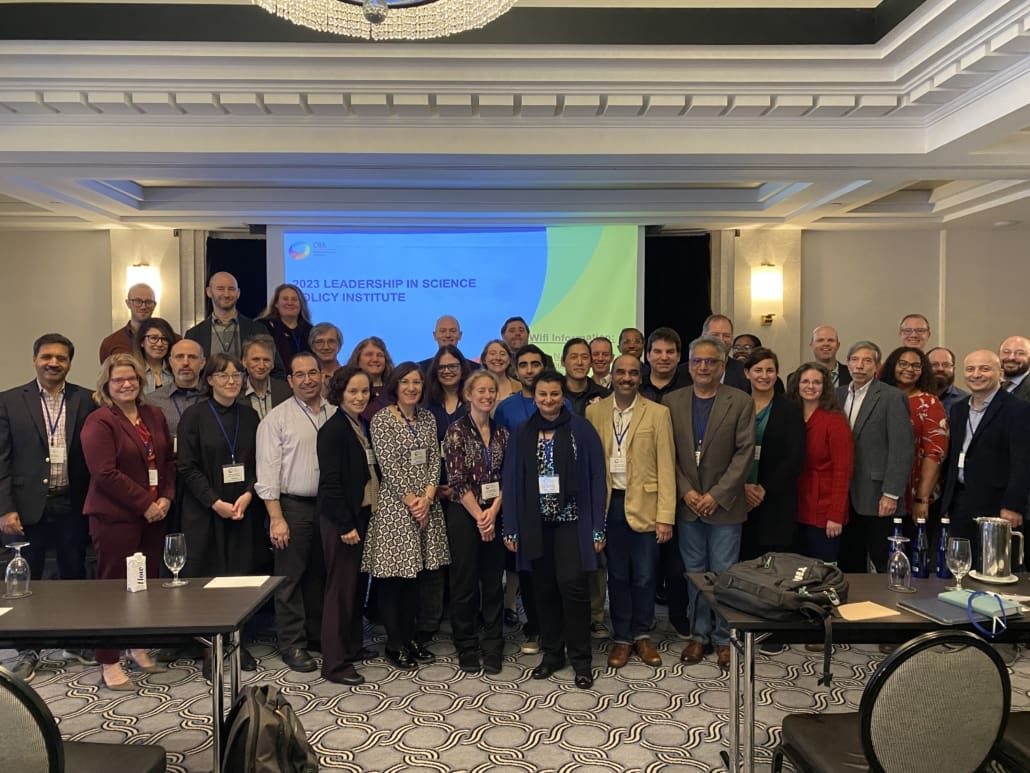Guest Post: A PhD Student’s Experience at the LiSPI Workshop
This article was written by Kaushal Kafle, a PhD student in the Department of Computer Science at the College of William & Mary, and a participant at the 2023 LiSPI workshop.
I participated in the recent CRA Leadership in Science Policy Institute (LiSPI) workshop as a student volunteer from William & Mary. The workshop is a day and half crash course in how science policy is made at the federal level in Washington and is geared to researchers who are interested in being more engaged in policy discussions that touch on computing science related matters. While the workshop is set up to encourage mid and senior career researchers, I came away with a reinvigorated sense of the role PhD students can play in communicating the importance of computing in government and policy discussions.
There are a few reasons why I found the workshop particularly useful for me as a PhD student. The workshop focused not just on how the government works, and how public policies are created, but also on the role the federal budget plays on these processes. As well, many of the invited speakers were faculty members from CRA member institutions who had previously served in various parts of the US government; not just at federal research agencies (like NSF or the Department of Energy), or on science advisory committees, but also at such non-research agencies like the State Department or even the White House. Their stories and pathways of going from academia to government and back were very insightful in thinking about the ecosystem in which both public policy and research exists. It also provided me with possible future opportunities in my own career. Furthermore, the participants of the workshop were researchers working in different areas and applications of computing (e.g., impact of social media on kids, use of AI in the criminal justice system). This networking opportunity provided me exposure to many interdisciplinary research, and helped me make several meaningful research connections.
Perhaps the most interactive session of the workshop was “Having the Conversation,” in which participants could volunteer to perform an “elevator pitch” of their research to a panel of former policy staffers and get feedback on their pitch and what they need to work on. As I worked on my own pitch and thought of my research in this new light, it helped me characterize the motivations and findings of my work in different ways, and helped crystallize their impact without falling back on technical jargon. This experience will make me a better communicator going forward. I also was able to learn from other participants and their pitches. Having all of these components at the same venue made me reflect on the unique relationship of my own research with policy; specifically how it can impact public policy and the public at large, and how public policy in turn shapes my research.
The workshop also had a positive impact on me as an aspiring academic. As a PhD student in computer science, I often thought of the world of public policy, including those related to computer science, as a “black box” and not fully knowing what impact I,or my community, could have on the process. Learning from this workshop, and the conversations with the speakers, have helped me deconstruct its elements and made me aware of the government and the public as other stakeholders in my research projects. It also makes me aware of how my work is intended not just for pushing the boundaries of knowledge but also to further the public well-being. I came away from the workshop with an expanded worldview, an extended network, and with a renewed interest in pursuing grounded and impactful research.









